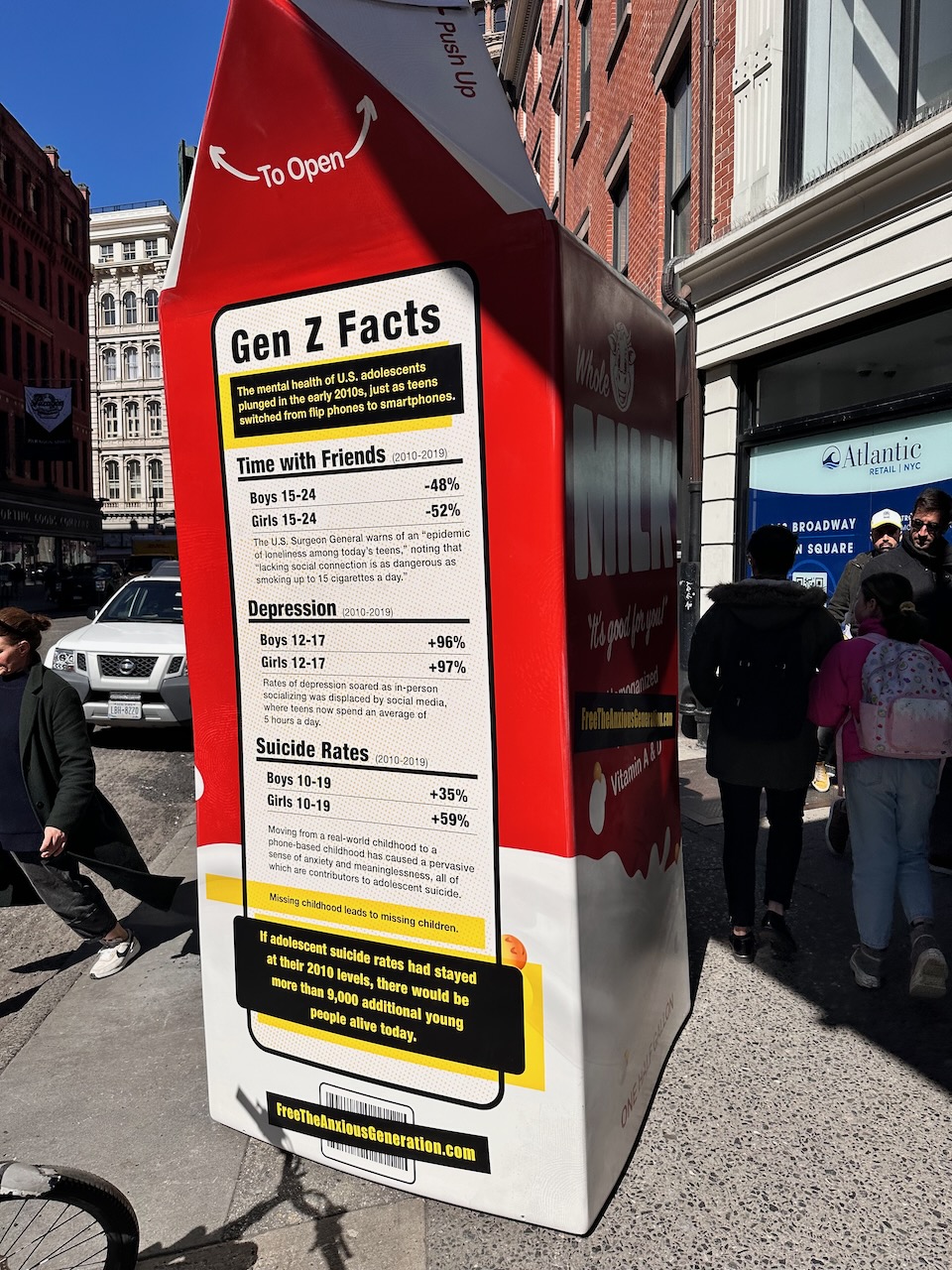The Anxious Generation
Yesterday, I walked across Union Square, only to discover a 10-ft milk carton sculpture with a nutrition label about Gen Z’s sky-high anxiety and suicide rates. Expecting it to be the new fact of Got Milk, more dairy industry propaganda in the strangest place, I took a packet of stickers from the weary attendants. It was a promotion of Jonathan Haidt’s new book The Anxious Generation. Meanwhile, startup Humane is retweeting his The Atlantic article, NYTimes podcast Hard Fork and a longtime favorite newsletter Platformer are writing about him. Jonathan Haidt has become inescapable this week, and honestly, I applaud his career strategy/media team.

No one can argue the advent of always-on phones and social media hasn’t dramatically changed our lives, especially for young people. I agree on some the main points the book (which I have not read) discusses would help the situation: no smartphones before high school (though I got one in middle school), no social media before age 16 (I got on Twitter at 13). Phone-free schools I’m less keen on, because we ostensibly have drug/alcohol-free schools, but anyone who has attended a school knows how that’s going. Yet combined, I have a hard time believing these alone would solve our problem, and the political implications of current implementations are frightening. 404 covered how recent website age verification laws for adult content have had disastrous consequences; Platformer connects how these laws connect the dots of the fascist agenda in Florida to ban minors from learning about anything LGBTQ+-related. Digital government IDs and operating system-level age verification might be first steps, but we need to implement these ideas in privacy-preserving ways.
Arguing that phones are responsible for the modern mental health crisis without considering surveillance, school shootings, the climate crisis, university admissions, and economic opportunity/the housing crisis is weak. These factors have intensified on similar timelines, and interplay in the lives of young people in complex ways. Chronically-online business school professors decades removed from young people are the last we need to hear from on the topic, especially ones previously known for oversimplified anti-"woke" narratives like The Coddling of the American Mind. His “Social Media” “area of interest” which only cites his constant drip of The Atlantic articles does not inspire academic confidence. He and his cadre of media men (Lex Fridman, Joe Rogan) love to complain about social media platforms, but they sure capitalize on spreading their thinly-researched ranting on every platform they can.